With the slogan, "Together for a better internet", Safer Internet Day 2022 was celebrated in Nepal and in approximately 180 countries on 8 February 2022. The Safer Internet Day is celebrated each year on the second Tuesday of February to promote a safer and more positive use of digital technologies for children and young people, and to inspire conversations at a national level around these topics.

The day offers the opportunity to highlight positive uses of technology and to explore the role we all play in helping to create a better and safer online community. It calls upon young people, parents, carers, teachers, social workers, law enforcement, companies, policymakers, and wider, to join together in helping to create a better internet.
ChildSafeNet, a specialised organisation working to protect children and young people online, is the coordinator and promoter of Safer Internet Day in Nepal.
In this digital age, the information and communication technology sector is advancing tremendously. Along with the fast progress, this revolution brings with it, numerous adversities and dangers.
says Anil Raghuvanshi, Founder/President of ChildSafeNet. As children and young people are heavy users of the technology, unsafe use of the internet exposes them to serious harms, such as online sexual abuse and exploitation, cyberbullying, cyber grooming, phishing and sextortion. Raghuvanshi added, "Children, young people, parents, teachers and governments need to take cyber safety seriously and fulfill their responsibilities in making the internet safer place".
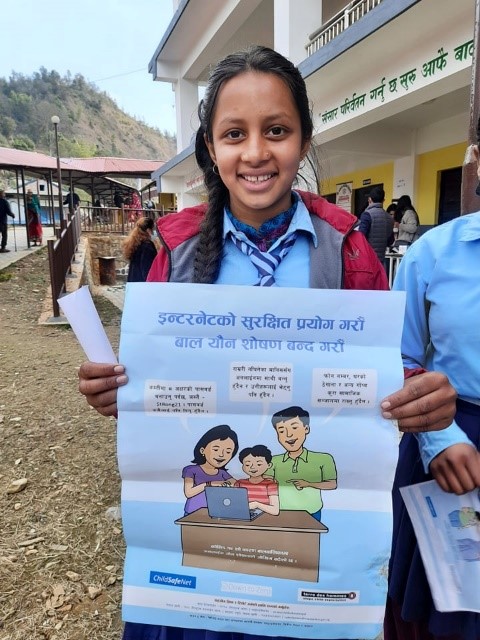
There has been a tremendous increase in online child sexual abuse and exploitation, globally, as a result of the COVID-19 pandemic. According to the US-based organisation National Center for Missing and Exploited Children, in 2019 there were 63,266 CyberTipline reports (suspected reports of online child sexual exploitation imagery) from Nepal. In 2020, it increased to almost three-fold, reaching a record number of 178,371.
Moreover, according to a ChildSafeNet study during the COVID-19 lockdown, one in five girls or young women and one in ten boys or young men in Nepal experienced online sexual abuse.
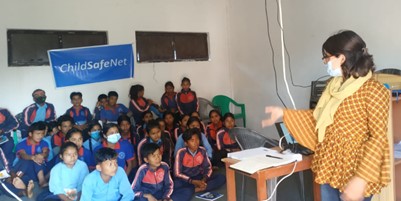
ChildSafeNet conducted online safety awareness sessions in different parts of the country, namely Sunsari, Kabhrepalanchok, Kathmandu, Lalitpur, Bhaktapur, Ramechhap, Nawalparasi, Dang, Surkhet and Doti districts. The awareness activities included online safety quizzes, screening of videos, presentations, discussions and essay competitions. Besides, online safety leaflets and posters were also distributed to children and schools, which were produced by ChildSafeNet in partnership with Terre des Hommes Netherlands.
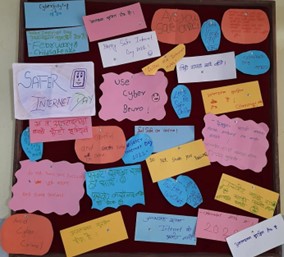
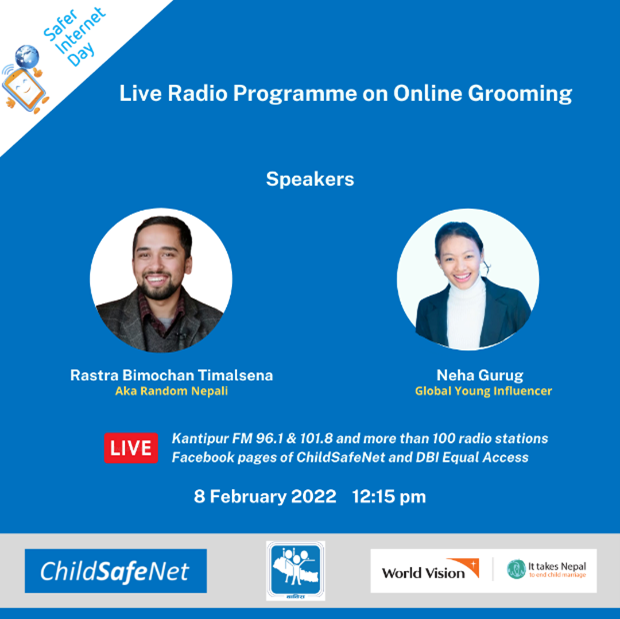
Furthermore, ChildSafeNet conducted a live radio programme on online safety in collaboration with World Vision International Nepal and Child Development Society. The radio programme was aired by the most popular FM radio of Nepal Kantipur FM, and more than one hundred FM radio stations of Nepal.
Besides, ChildSafeNet, in collaboration with Plan International Nepal, conducted a virtual workshop with adolescents and young people from different parts of the country. The participants shared their thoughts on online safety and identified gaps in their protection from online sexual abuse and exploitation. They also prepared a set of recommendations to make the internet safer for them. The recommendations will be submitted to the government and other duty-bearers in a workshop.
Similarly, ChildSafeNet raised awareness on online safety through social media, in collaboration with Terre des Hommes Netherlands and Good Shepherd International Nepal.
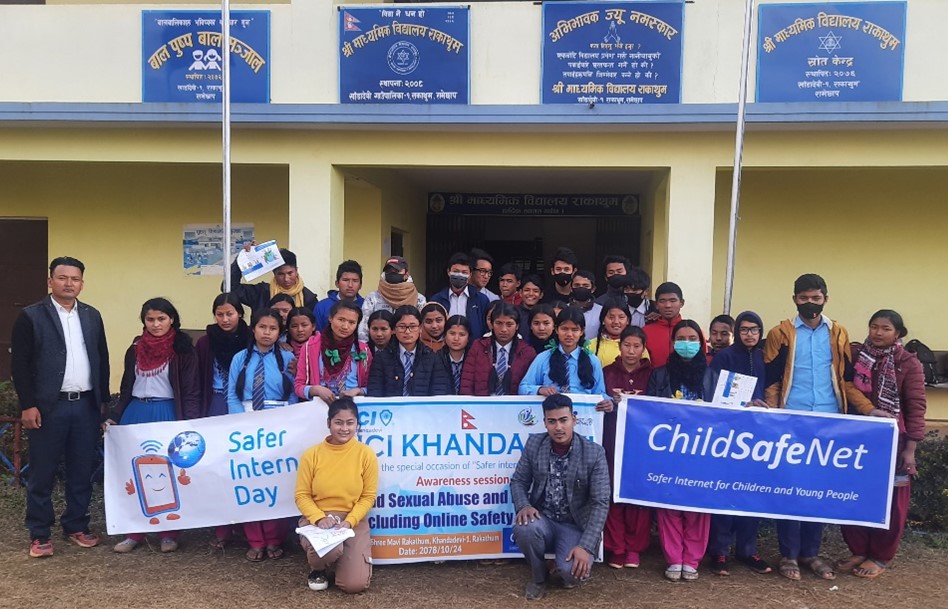
Likewise, ChildSafeNet and its partner organisations Veda Creation Society, Love Green Nepal, Plan International Nepal, Child Development Society, World Vision International Nepal, Digital Broadcast Initiative Equal Access and Kathmandu District Child Club Network conducted online safety awareness activities, including online and offline events, radio and TV programmes, children and young people's interactions, essay competitions, screening of videos and quiz contests. The Safer Internet Day 2022 activities will be conducted throughout the year.
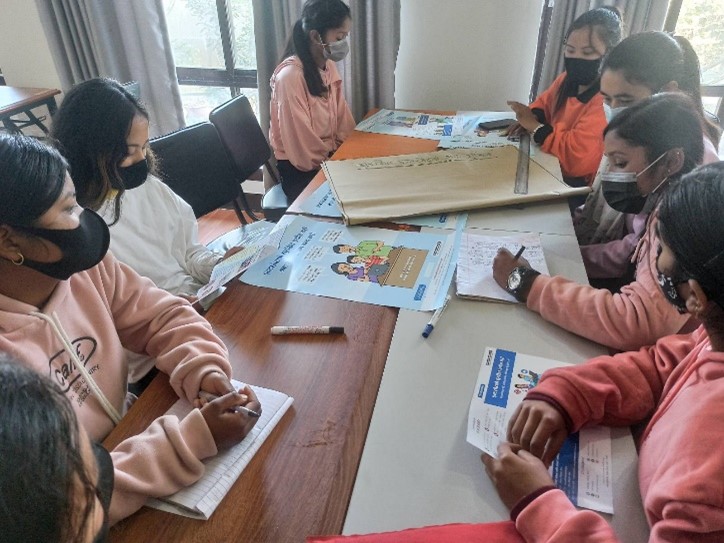
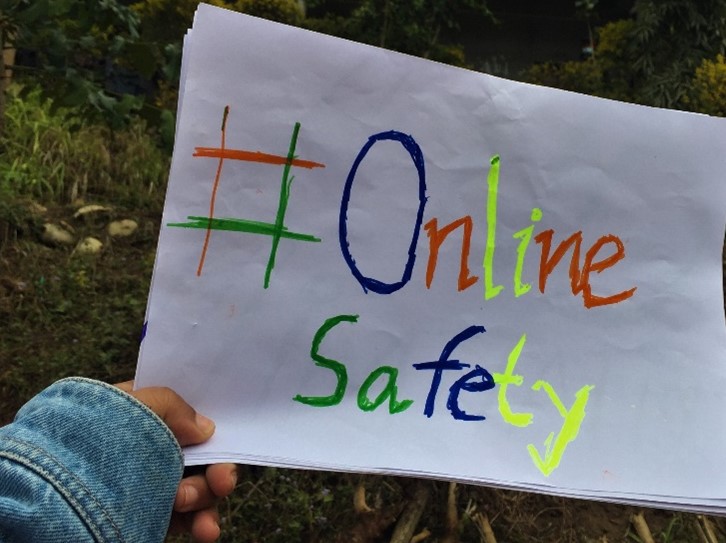
Besides organisations working on children's issues, including CWIN Nepal, Umbrella Organisation, Saa Phu, Yuwalaya, Voice of Children and WYESHR conducted online safety awareness programmes in their respective programme areas.
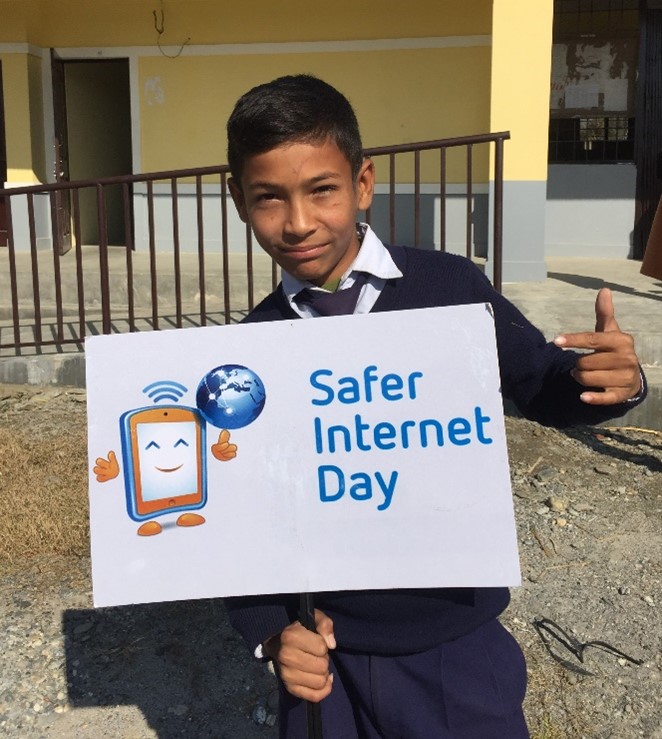
ChildSafeNet (www.childsafenet.org) is a non-governmental organization, working to make the digital technology safer for children and young people. We work to raise awareness on safer use of the internet and digital devices to protect children and young people from Internet addiction, online sexual abuse and exploitation, cyber-bullying, phishing, gaming addiction and to promote digital literacy.
With the slogan, "Together for a better internet", Safer Internet Day 2022 was celebrated in Nepal and in approximately 180 countries on 8 February 2022. The Safer Internet Day is celebrated each year on the second Tuesday of February to promote a safer and more positive use of digital technologies for children and young people, and to inspire conversations at a national level around these topics.

The day offers the opportunity to highlight positive uses of technology and to explore the role we all play in helping to create a better and safer online community. It calls upon young people, parents, carers, teachers, social workers, law enforcement, companies, policymakers, and wider, to join together in helping to create a better internet.
ChildSafeNet, a specialised organisation working to protect children and young people online, is the coordinator and promoter of Safer Internet Day in Nepal.
In this digital age, the information and communication technology sector is advancing tremendously. Along with the fast progress, this revolution brings with it, numerous adversities and dangers.
says Anil Raghuvanshi, Founder/President of ChildSafeNet. As children and young people are heavy users of the technology, unsafe use of the internet exposes them to serious harms, such as online sexual abuse and exploitation, cyberbullying, cyber grooming, phishing and sextortion. Raghuvanshi added, "Children, young people, parents, teachers and governments need to take cyber safety seriously and fulfill their responsibilities in making the internet safer place".

There has been a tremendous increase in online child sexual abuse and exploitation, globally, as a result of the COVID-19 pandemic. According to the US-based organisation National Center for Missing and Exploited Children, in 2019 there were 63,266 CyberTipline reports (suspected reports of online child sexual exploitation imagery) from Nepal. In 2020, it increased to almost three-fold, reaching a record number of 178,371.
Moreover, according to a ChildSafeNet study during the COVID-19 lockdown, one in five girls or young women and one in ten boys or young men in Nepal experienced online sexual abuse.

ChildSafeNet conducted online safety awareness sessions in different parts of the country, namely Sunsari, Kabhrepalanchok, Kathmandu, Lalitpur, Bhaktapur, Ramechhap, Nawalparasi, Dang, Surkhet and Doti districts. The awareness activities included online safety quizzes, screening of videos, presentations, discussions and essay competitions. Besides, online safety leaflets and posters were also distributed to children and schools, which were produced by ChildSafeNet in partnership with Terre des Hommes Netherlands.


Furthermore, ChildSafeNet conducted a live radio programme on online safety in collaboration with World Vision International Nepal and Child Development Society. The radio programme was aired by the most popular FM radio of Nepal Kantipur FM, and more than one hundred FM radio stations of Nepal.
Besides, ChildSafeNet, in collaboration with Plan International Nepal, conducted a virtual workshop with adolescents and young people from different parts of the country. The participants shared their thoughts on online safety and identified gaps in their protection from online sexual abuse and exploitation. They also prepared a set of recommendations to make the internet safer for them. The recommendations will be submitted to the government and other duty-bearers in a workshop.
Similarly, ChildSafeNet raised awareness on online safety through social media, in collaboration with Terre des Hommes Netherlands and Good Shepherd International Nepal.

Likewise, ChildSafeNet and its partner organisations Veda Creation Society, Love Green Nepal, Plan International Nepal, Child Development Society, World Vision International Nepal, Digital Broadcast Initiative Equal Access and Kathmandu District Child Club Network conducted online safety awareness activities, including online and offline events, radio and TV programmes, children and young people's interactions, essay competitions, screening of videos and quiz contests. The Safer Internet Day 2022 activities will be conducted throughout the year.


Besides organisations working on children's issues, including CWIN Nepal, Umbrella Organisation, Saa Phu, Yuwalaya, Voice of Children and WYESHR conducted online safety awareness programmes in their respective programme areas.

ChildSafeNet (www.childsafenet.org) is a non-governmental organization, working to make the digital technology safer for children and young people. We work to raise awareness on safer use of the internet and digital devices to protect children and young people from Internet addiction, online sexual abuse and exploitation, cyber-bullying, phishing, gaming addiction and to promote digital literacy.
- Safer Internet Day (SID) online safety
Related content
- < Previous article
- Next article >









